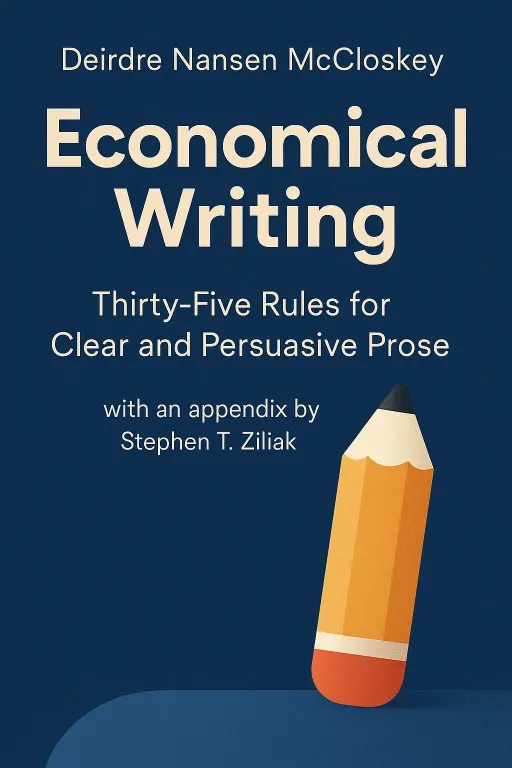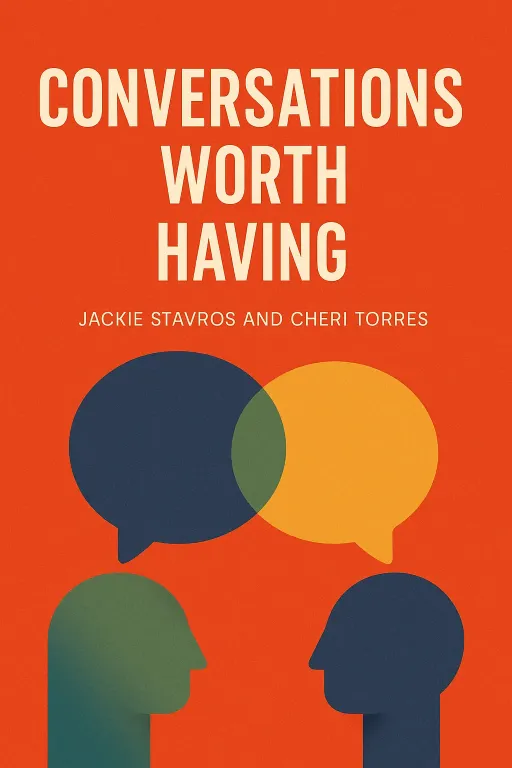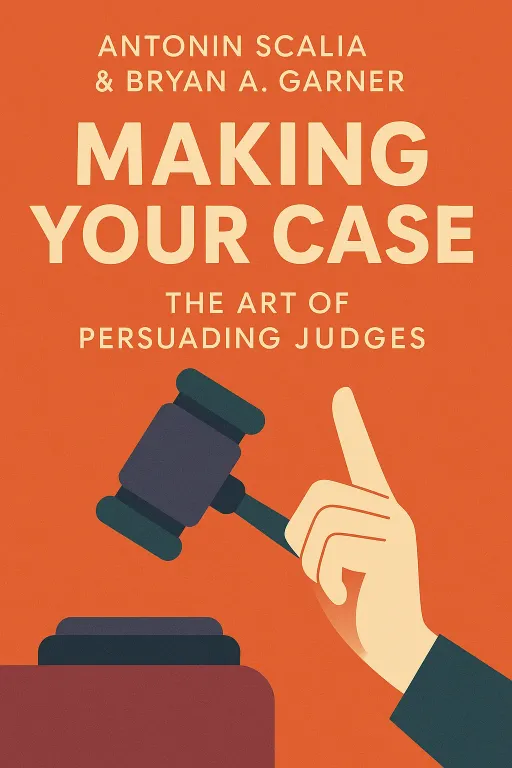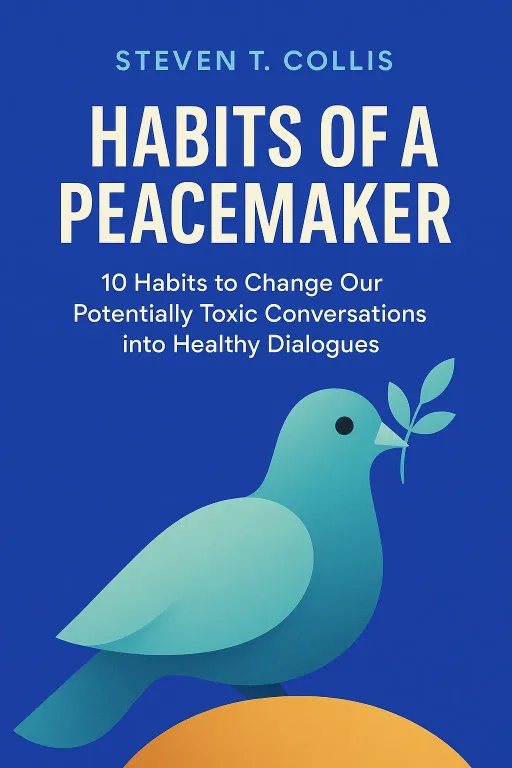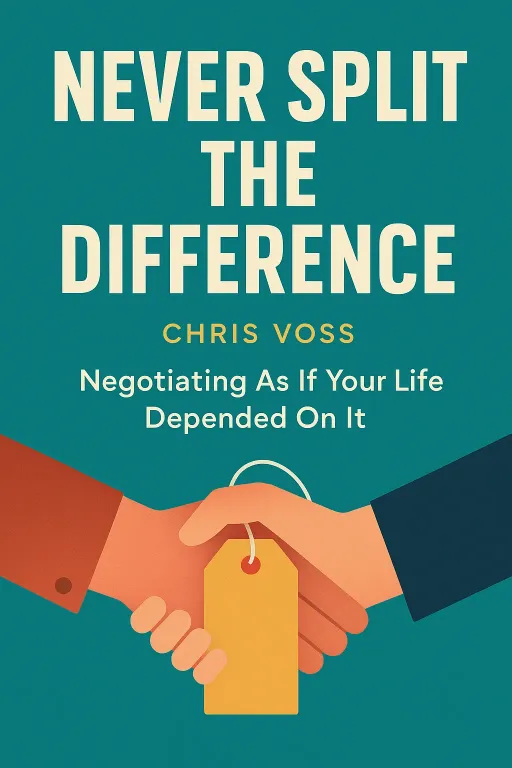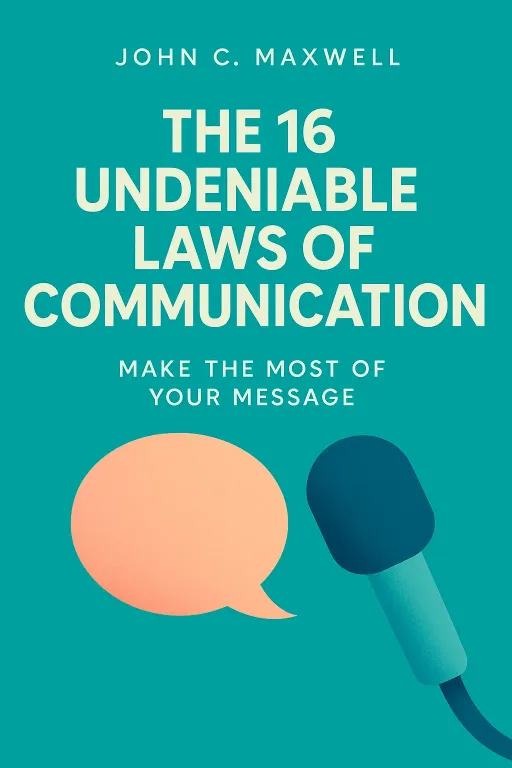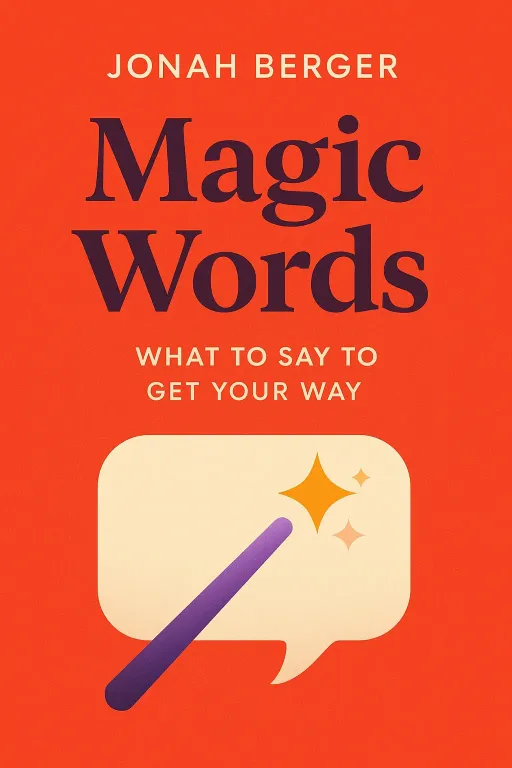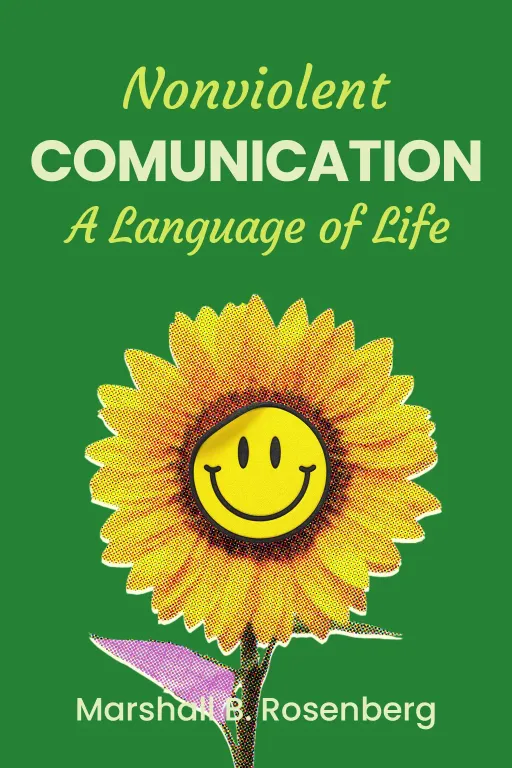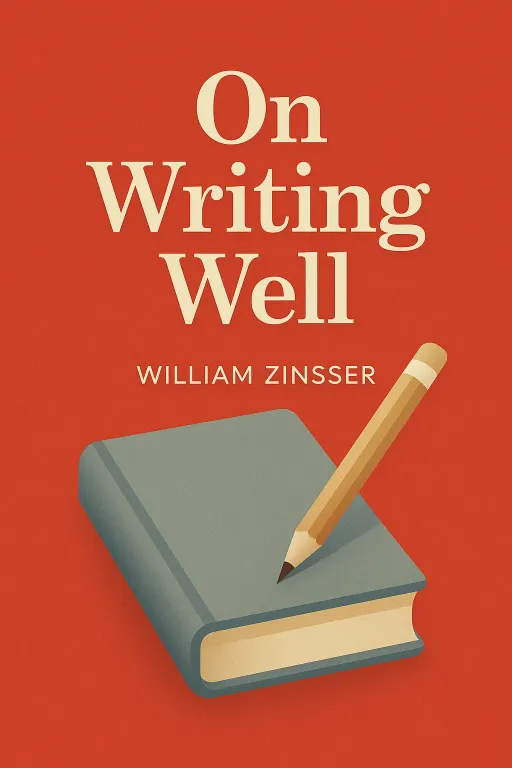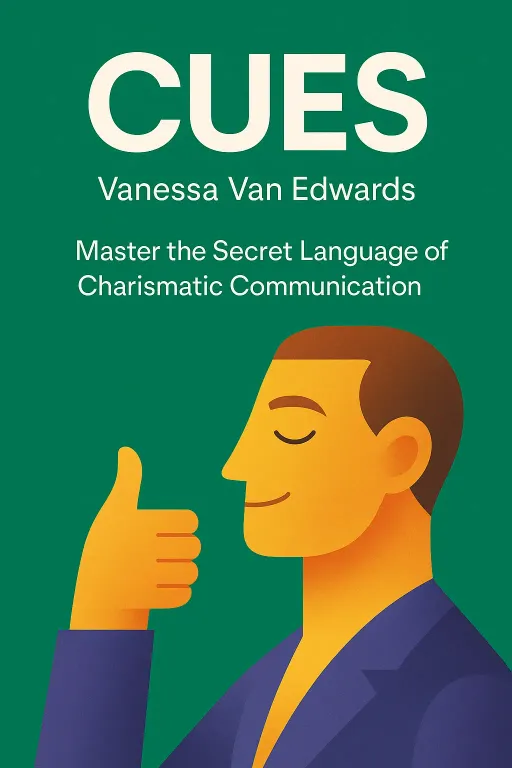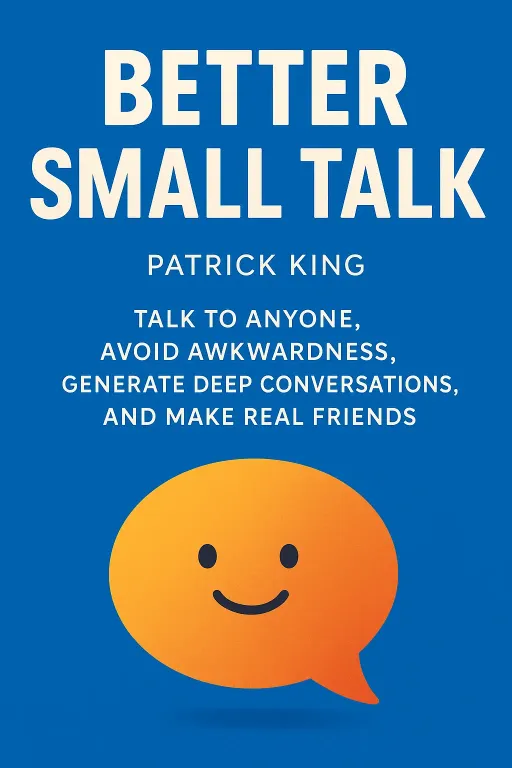
The Small Talk Upgrade
12 minTalk to Anyone, Avoid Awkwardness, Generate Deep Conversations, and Make Real Friends
Golden Hook & Introduction
SECTION
Michelle: Alright Mark, I'm putting you on the spot. The topic is "small talk." Give me your one-sentence, gut-level review. Mark: Easy. Small talk is the conversational equivalent of airplane food. It’s bland, nobody really wants it, but sometimes it’s the only thing on the menu to get you where you’re going. Michelle: That is brutally honest, and also… perfect. It’s the necessary evil of social life. You endure it to get to the good stuff. Mark: Exactly. It’s the broccoli you have to eat before you get the dessert of a real, actual conversation. Michelle: That's the perfect entry point for the book we're diving into today, 'Better Small Talk' by Patrick King. He basically takes that universal feeling of dread and tries to turn it into a superpower. Mark: I’m intrigued but skeptical. Is he some kind of social wizard who has never had an awkward silence in his life? Michelle: That’s what’s so fascinating. Patrick King isn't your typical self-help guru. This is a guy with a wild resume—we're talking military training, private security in the Middle East, and investigative journalism before he became a bestselling social skills coach. He's seen human interaction in some high-stakes environments. Mark: Wow, so he's not just talking about navigating the cheese platter at a mixer. He’s probably had to make small talk with people where the stakes were a little higher than just getting a business card. Michelle: Precisely. He’s coming at this from a place of deep, practical experience with human dynamics. And his core argument starts with validating your "airplane food" theory. He says our brains are basically wired to hate small talk. Mark: Wait, really? There’s a scientific reason for my suffering at networking events? Please, tell me more. This feels like a diagnosis I've been waiting for my whole life.
The Small Talk Paradox: Why Our Brains Hate It, But We Desperately Need It
SECTION
Michelle: There absolutely is. He points to this incredible study from 2010 by a researcher named Matthias Mehl. And the setup is brilliant. Researchers essentially bugged a group of participants. They had them wear audio recorders for three days, capturing thousands of their conversations in the wild. Mark: That sounds both fascinating and slightly terrifying from a privacy perspective. What were they listening for? Michelle: They were categorizing every single interaction. Was it superficial chitchat—you know, "How about this weather?"—or was it a substantive, deep conversation? At the same time, they were measuring the participants' overall well-being and happiness. Mark: Okay, I’m on the edge of my seat. What was the verdict? Michelle: The results were crystal clear. The more time people spent on small talk, the less happy they reported being. And the more time they spent in deep, meaningful conversations, the happier they were. The book puts it bluntly: "Sounds like even our brains despise small talk." Mark: See! I knew it! Science proves what we've all felt in our souls at a terrible office party! It’s not just awkward, it’s literally dragging down our happiness score. So, if it's so bad for us, why is the book called Better Small Talk and not No More Small Talk? Why not just skip it? Michelle: That’s the paradox, and it’s the first major insight of the book. You can't skip it. King argues that conversation is like climbing a ladder, and small talk is the first, non-negotiable rung. He lays out four stages. Mark: A ladder. Okay, I can visualize that. What are the rungs? Michelle: Rung one is Small Talk—the basic, surface-level stuff. Rung two is Fact Disclosure, where you start sharing neutral information about yourselves, like what you do for a living or where you grew up. Rung three is Opinion Disclosure, where you start sharing what you think about things. And the top rung, rung four, is Emotion Disclosure—sharing how you feel. Mark: Ah, I see. You can’t just jump to rung four and tell a stranger your deepest fears without climbing the other rungs first. That would be… alarming. Michelle: Exactly. You’d be that person at the party everyone slowly backs away from. Small talk, as much as we might dislike it, is the mechanism we use to build the initial trust and rapport required to even think about climbing higher. It’s the foundation. You can’t build a skyscraper on thin air. Mark: That makes a lot of sense. It’s the social lubricant, the warm-up before the main workout. You’re not supposed to live in the warm-up, but you have to do it to avoid pulling a social muscle. Michelle: That’s a perfect analogy. The goal isn't to have the best small talk ever. The goal is to use small talk efficiently and effectively to open the door to something more. The problem is, most of us get stuck on that first rung, just going back and forth about the weather until the conversation dies of boredom. Mark: Okay, so we have to do it. But how do we make that first step less… excruciating? How do we set the right vibe from the get-go so we can start climbing that ladder instead of just standing at the bottom of it?
The 'Friendship Shortcut': How to Set the Tone and Manufacture Connection
SECTION
Michelle: This is my favorite part of the book, because it’s a simple mindset shift with huge implications. King’s advice is to set the tone by making a mental leap. From the moment you meet someone, you decide: "we're friends now," and you treat them as such. Mark: Hold on. That sounds… potentially unhinged. If I walk up to a complete stranger and act like we’re best buddies, isn't that going to come off as weird or overly familiar? I’m picturing a lot of confused blinking. Michelle: It’s not about being over-the-top. It’s about the subtle signals you send. He uses this brilliant story to explain it: the Substitute Teacher Analogy. Mark: Oh, I know that feeling. The terror and the opportunity of a substitute teacher. Michelle: Exactly. Imagine you’re in elementary school. Your regular teacher is gone, and a sub is coming. The whole class is on edge. You don’t know the rules. Is this sub going to be super strict, punishing anyone who even breathes too loudly? Or are they going to be the cool, relaxed sub who lets you get away with anything? Mark: You’re on your absolute best behavior for the first ten minutes, just watching them. You’re calibrating. Michelle: Precisely. You’re looking for signals to tell you how to act. The substitute teacher sets the tone for the entire day with their first few actions and words. King’s point is that in every new social interaction, we are the substitute teacher. We are constantly sending signals that tell the other person whether this is going to be a stiff, formal, "stranger" interaction, or a warm, relaxed, "friend" interaction. Mark: That’s so true. You walk into a meeting and can instantly feel the energy. One person's tone can change the entire room. So how do you actually do that? What does "acting like a friend" look like in practice, without being creepy? Michelle: It's about warmth and openness. It means you smile genuinely. You use more expressive and emotional language instead of being monotone and robotic. You might use playful humor or a bit of light teasing. You’re not afraid to share a small, personal anecdote early on. The book’s core quote here is, "When you treat people like strangers, strangers they will remain." Mark: So it’s less about the specific words and more about the vibe you’re putting out. You’re giving them permission to relax and be more themselves. Michelle: You are. And there's science to back this up, too. King references the famous "36 Questions to Fall in Love" study by Arthur Aron. In that experiment, strangers were paired up and asked each other a series of increasingly personal questions. Mark: I’ve heard of this! The questions get really deep, really fast. Michelle: They do. And the result was that these pairs of strangers reported feeling an incredible sense of closeness and intimacy in a very short amount of time. Some even did fall in love and get married. The point isn't that we should interrogate strangers, but that it proves human connection can be accelerated dramatically when we intentionally create the conditions for it. By setting a friendly, open tone, you’re essentially starting that process. Mark: You’re fast-tracking the intimacy. You're sending the signal that it's safe to climb the ladder. That’s a powerful idea. But all these techniques are about how you interact with others. What if the problem is… you? What if you feel like you just don't have anything interesting to say in the first place? Michelle: Well, you just set up the book's most profound point perfectly. All these techniques are just the software. The final, and most important, part of the book is about upgrading the hardware—you.
Becoming a Conversationalist from the Inside Out: The 'Conversation Résumé' and Building Thyself
SECTION
Michelle: King introduces this concept that I think is a complete game-changer for how we think about conversation. He calls it the "Conversation Résumé." Mark: A Conversation Résumé? What’s on it? "Skills: Can talk about the weather for seven minutes straight"? Michelle: (laughs) Not quite. He asks you to imagine that your life, your experiences, your hobbies, your knowledge, your opinions—all of that is your résumé. When you go into a conversation, that's what you have to draw from. The problem is, many of us forget what's on our own résumé, or worse, we haven't added anything new to it in years. Mark: Oh man, that hits home. If you asked me what I did last week, my conversation résumé would be pretty bleak. It would say 'responded to emails,' 'attended meetings,' and 'rewatched a TV show.' It's a powerful wake-up call. Michelle: It really is. And he illustrates this with a great little story about a guy he calls "Conversationalist Jeffrey." Jeffrey is the kind of person everyone loves talking to. He can connect with anyone on almost any topic. And it’s not because he’s a natural genius. It’s because every morning, he reads the news. He listens to interesting podcasts. He watches documentaries. He actively, consciously adds lines to his conversation résumé every single day. Mark: He’s building his inventory of things to talk about. Michelle: Exactly. He’s contrasted with the person whose life is just a routine of work, eat, sleep, repeat. When that person gets into a conversation, their mind goes blank because their résumé is empty. They have nothing to offer. Mark: You know, it’s interesting. This is the part of the book where some readers get critical. They say the advice feels a bit 'well, duh.' Like, 'be more interesting.' It seems obvious. What's the real takeaway here that people are missing? Michelle: I think that's a fair point, and the book even acknowledges it. The advice might seem simple, but the key is in the framing. It’s not a passive suggestion to "be interesting." It’s an active command to "build thyself." It reframes personal growth not as some vague self-help goal, but as a practical prerequisite for a better social life. Mark: So it’s not about finding a magic trick to seem interesting. It’s about doing the actual work of becoming interesting. Michelle: Precisely. The book argues that we spend so much time looking for external techniques and conversational hacks that we forget the most fundamental step: cultivating a rich inner world. Pursue hobbies. Develop informed opinions. Branch out. Be curious. If you do that, captivating conversations become a natural byproduct of who you are, not a performance you have to put on. The best technique is to have a life worth talking about. Mark: That’s a much deeper point. It’s not about the conversation, it’s about the person having it. It shifts the focus from 'what do I say?' to 'who am I?' Michelle: Exactly. It’s the ultimate solution to the small talk problem. If you become a person with lots to say, you’re never truly stuck in small talk. You always have a path to something more meaningful.
Synthesis & Takeaways
SECTION
Mark: Wow. So we've really gone on a journey here. We started with the scientific proof that small talk makes us unhappy, then we learned we have to do it anyway, but we can make it better by acting like a friend from the start. And now we’ve landed on this idea that the ultimate hack is actually just… having a life. Michelle: That’s the whole arc. The book's true genius is that it starts with a common, relatable problem—awkward conversations—but it ends with a profound and deeply personal solution: self-cultivation. It’s not about faking it. It’s about becoming someone who doesn't need to. Mark: It’s a shift from an external focus on techniques to an internal focus on your own life and curiosity. Michelle: Yes. The real skill isn't memorizing clever opening lines. It's cultivating a genuine curiosity, both about other people and about the world around you. If you are genuinely curious, you will ask better questions. If you are genuinely engaged with life, you will have better stories to tell. The conversation takes care of itself. Mark: That feels so much more empowering than just learning a script. So, the challenge for everyone listening is pretty clear. What's one thing you can add to your 'conversation résumé' this week? Michelle: I love that. It doesn't have to be massive. Read one fascinating article outside your field. Watch a documentary on a topic you know nothing about. Try a new recipe and be prepared to talk about how it went, disaster or not. Just add one new line item. Mark: A disaster is often a better story anyway. It’s more relatable. Michelle: Absolutely. And we'd love to hear what you come up with. Share your 'résumé additions' with us on our social channels. Let's inspire each other to become more interesting people. Mark: A fantastic challenge. This has been an eye-opener. Michelle: This is Aibrary, signing off.
